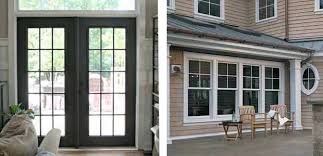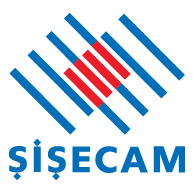Isıcam Systems, the trade mark of Şişecam Flat Glass, used in Turkey for double glazing insulating units, are produced by Isıcam Authorized Producers through the supervision of Şişecam Flat Glass in which convenient dry air or gases are present between two or more glass panes. Depending on the properties of the glass used, Isıcam Systems provides
Advantageswith its 3 different series and additional features.
Isıcam Sytems K Series:This series is manufactured from high quality heat and solar control coated Şişecam Low-E Glass. Compared to ordinary double glazing units, it reduces heat loss by 50% providing maximum thermal insulation in winter and it reduces solar heat gains by 40%, thusly reducing cooling costs in summer.
Isıcam Sytems S Series:This series is manufactured from high quality heat control coated Şişecam Low-E Glass. Compared to ordinary double glazing, it reduces heat loss by 50%, thus decreasing heating expenses and saving energy during the winter.
Isıcam Sytems C Series:This Series is the classical series which provides insulation at a standard level through the Isıcam's assurance. Isıcam Systems are manufactured by Isıcam Authorized Producers who are regularly inspected by Şişecam Düzcam. Please do not forget to request the 10 years warranty certificate provided by Isıcam Authorized Producer.
Customize your Isıcam with Extra FeaturesAll series of Isıcam Systems can be specialized with additional features through the use of different types of glass creating happy and peaceful interiors inside.
LAMİNATED GLASS
Isıcam unit, manufactured by using Şişecam Laminated Glass, offers safety and security features by preventing injuries that may be caused by the fragmentation of glass after breaking, as well as thermal insulation.
ACOUSTİC LAMİNATED GLASS
Isıcam unit, manufactured by using sound insulation Şişecam Acoustic Laminated Glass, also provides noise control in addition to thermal insulation, thusly reducing the transfer of sound while also offering the safety and security features of Şişecam Laminated Glass.
TEMPERABLE GLASS
The Isıcam unit, manufactured by using the safety-providing Şişecam Temperable Low-E / Solar Low-E Glass (heat / heat and solar control glass). When it is broken, it fragments into small and blunt pieces thus reduces the risk of injury. That's why it is eligible for use as a safety glass. The product reduces heating and cooling costs by its heat and solar control features.
TRİPLE SYSTEMS
It is the triple Isıcam systems which provides maximum thermal insulation. It offers 4 times better thermal insulation compared to ordinary double glazing units.
TINTED GLASS
Isıcam unit, manufactured by using the Şişecam Tinted Float Glass that provides solar control, both offers thermal insulation and limits solar heat gain in buildings, as well as controls extreme solar brightness, and reduces cooling energy consumption in air-conditioned environments.
REFLECTİVE GLASS
Isıcam unit, manufactured by using Şişecam Tentesol and Şişecam Tentesol Titanium reflective glass that provides solar control, both ensures thermal insulation and limits solar heat gain in buildings, as well as controls extreme solar brightness and reduces cooling energy consumption in air-conditioned environments. It creates a mirror effect when it is viewed from the side where the light is bright, due to its reflective features. It provides visual integrity on commercial buildings with glass facades.
Performance Table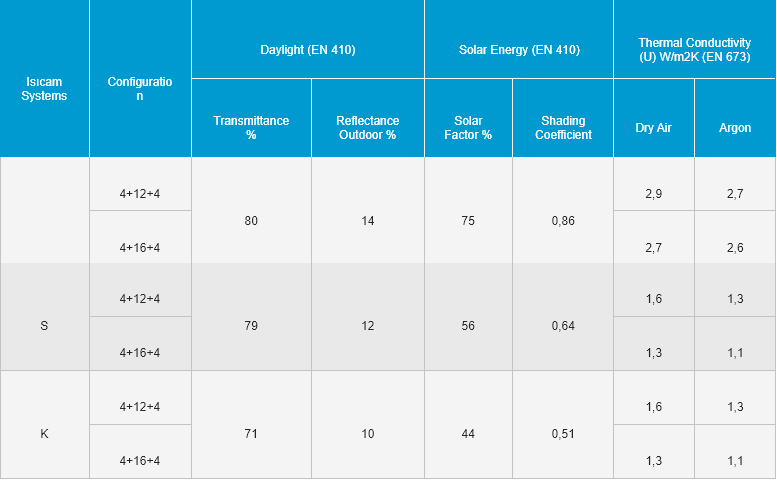 Isıcam conforms to the following national / international standards
Isıcam conforms to the following national / international standards
TS 3539 EN 1279 Glass in building – Insulating Glass Units.
Raw materials conform to the following national / international standards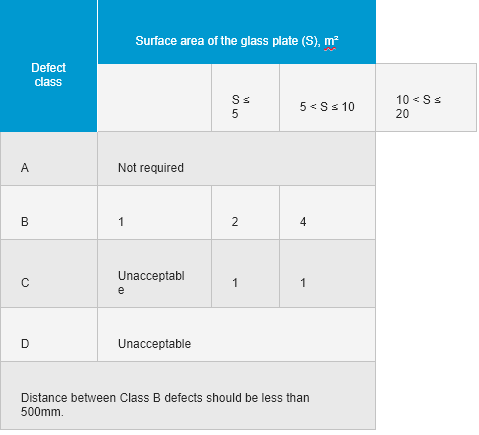 Spot fault groups
Spot fault groups
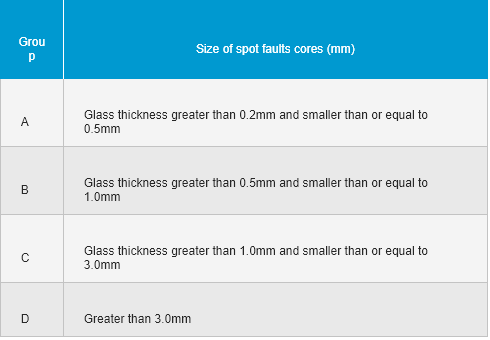 The tolerances in TS EN 1096 Coated Glass Standard are applicable for Isıcam units manufactured with above-line reflective solar control coated glass, Solar Low-E and Low-E, which are both produced and/or sold by Şişecam Düzcam.
The tolerances in TS EN 1096 Coated Glass Standard are applicable for Isıcam units manufactured with above-line reflective solar control coated glass, Solar Low-E and Low-E, which are both produced and/or sold by Şişecam Düzcam.
Isıcam's optic and visual quality is defined by TS EN 1279/1. Accordingly, the optic and visual quality given in the related standards of glass that constitute Isıcam are applicable. The appearance and quality conditions of single panes are at a level which would not exceed the maximum error limit; therefore, there is no need to look for an additional requirement in this regard. Nevertheless, a higher acceptance level may be included in a quality agreement between the customer and the isolation glass unit manufacturer. Details on optic and apparent quality inherent to ISICAM's natural structure and/or physical specifications are detailed in TS EN 1279/1 Annex C. Any linear defects are not allowed as detailed in TS EN 572/8 Standard for Glass Marketing and End-Cutting Dimensions. In TS EN 572/8, although an observation distance is given as 2m for the identification of both standard spot and superficial defects, the observation distance will be considered as 1m as per Isıcam standard. Therefore, the defects mentioned in TS EN 572/8 and TS EN 1096 are considered a mistake when they are identified at a 1m observation distance.
As you are aware, the separating material (lucite powder, paper etc.) prevents friction of glass units when placed top of each other, and protects the glass surface against humidity and temperature variations. The powder or paper placed between the glass panes has a compound structure that does not damage the chemical structure of the glass; neither powder nor paper is used. The grain size is also at least as important as the chemical structure of the powder. Therefore, the paper and powder to be inserted between glass units are distinctively chosen and used after being checked. Corrosion error occurs upon the damage of the chemical structure of glass through the condensation of humidity present in air or through wetting of spot-worn surfaces that occur upon friction of glass panes. Corrosion defect is noted as white spots on glass in a later stage. It may not be observed with the naked eye at the beginning stage. Therefore, corrosion should be checked by keeping stream onto the glass surfaces at a close distance from time to time. Corrosion defects are not allowed on an Isıcam unit. Therefore, care should be taken during storage and handling of glass packages. Particularly in winter season when glass packages are transferred from outside to inside of the factory, packages should not be opened and processed until the product has reached ambient temperature. There should not be any dust, stain, sealant stains, finger prints etc. on the internal surfaces of glass panes.
A blind or plisse curtain is mounted between the glass in an insulating glass unit..
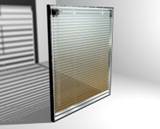
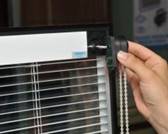
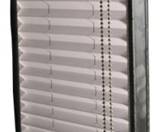 DECORATIVE PROFİLE İN DOUBLE GLAZİNG GLASS
DECORATIVE PROFİLE İN DOUBLE GLAZİNG GLASS
